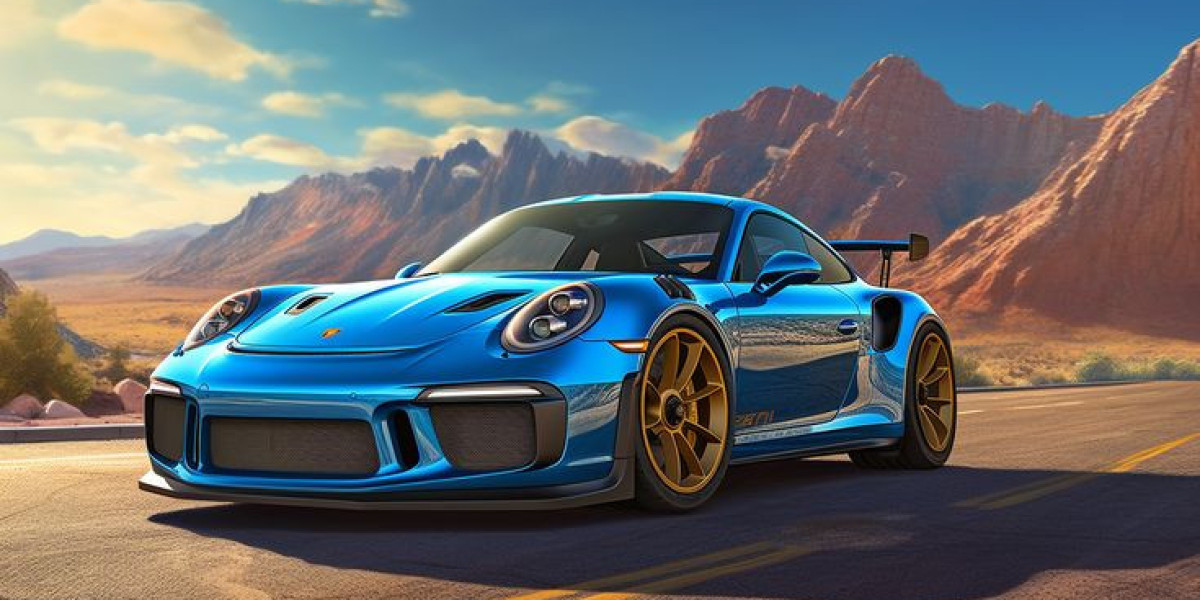Luxury Cars: The Pinnacle of Automotive Excellence
Luxury cars embody the perfect blend of innovation, opulence, and performance. These vehicles represent the zenith of automotive engineering, offering unmatched comfort, cutting-edge technology, and superior craftsmanship. From sleek exteriors that turn heads to plush interiors that envelop occupants in lavishness, luxury cars are designed to deliver an unparalleled driving experience. As symbols of status and success, they cater to discerning individuals who value both aesthetics and functionality. In this blog, we will delve into the world of luxury cars, exploring their history, technological advancements, market trends, and the unique features that set them apart from standard vehicles.
Luxury cars have always been a symbol of affluence and sophistication. They are not just vehicles; they are expressions of a lifestyle that prioritizes comfort, style, and innovation. The allure of luxury cars lies in their ability to combine high performance with superior quality, making them highly desirable among car enthusiasts and those seeking to make a statement. In this comprehensive blog, we will journey through the evolution of luxury cars, examine the current market dynamics, and look ahead to future trends that will continue to redefine this elite segment of the automotive industry.
The Evolution of Luxury Cars
A Glimpse into History
Luxury cars have a rich history that dates back to the early 20th century. The emergence of brands like Rolls-Royce, Bentley, and Cadillac set the stage for what would become a competitive and illustrious market. These pioneers of luxury cars established a reputation for quality and exclusivity, appealing to the affluent and influential.
The inception of luxury cars can be traced to the early 1900s, when automobiles were a rarity and a luxury in themselves. Companies like Rolls-Royce, established in 1906, began to focus on creating automobiles that were not only functional but also a statement of wealth and prestige. Rolls-Royce's Silver Ghost, introduced in 1907, is often hailed as the first true luxury car, setting standards for reliability and elegance.
Bentley, another iconic brand, was founded in 1919 with a mission to build "a fast car, a good car, the best in its class." The brand quickly gained a reputation for its powerful and luxurious vehicles, winning several Le Mans races in the 1920s, which further cemented its status in the luxury car market.
In the United States, Cadillac emerged as a leader in the luxury car segment. Founded in 1902, Cadillac introduced innovations such as the electric starter, which made cars more accessible and easier to operate. By the 1920s, Cadillac had established itself as a symbol of American luxury, with models like the V-16 setting new benchmarks in performance and luxury.
Technological Innovations
As technology progressed, so did the features and capabilities of luxury cars. From the introduction of power windows and air conditioning in the 1940s to advanced infotainment systems and autonomous driving capabilities today, luxury cars have consistently been at the forefront of automotive innovation. The integration of cutting-edge technology is a hallmark of luxury cars, ensuring they remain ahead of the curve.
The post-World War II era saw a boom in technological advancements that significantly impacted luxury cars. The 1950s and 1960s were marked by the introduction of power steering, automatic transmissions, and air conditioning—features that became standard in luxury cars before trickling down to mainstream models.
In the 1980s and 1990s, the focus shifted towards enhancing the driving experience through the use of electronic systems. Anti-lock braking systems (ABS), electronic stability control (ESC), and advanced navigation systems became key features in luxury cars. Brands like Mercedes-Benz and BMW led the way in incorporating these technologies, ensuring that luxury cars were not only comfortable and stylish but also safe and easy to drive.
The 21st century has seen a rapid acceleration in technological advancements, with luxury cars embracing digitalization and connectivity. Today, features like adaptive cruise control, lane-keeping assist, and autonomous driving capabilities are standard in many luxury cars. Infotainment systems have evolved to include large touchscreens, voice-activated controls, and seamless integration with smartphones, providing a connected and intuitive user experience.
Market Trends and Consumer Preferences
Current Market Dynamics
The luxury car market is a dynamic and evolving sector, influenced by economic conditions, consumer preferences, and technological advancements. In recent years, there has been a significant shift towards sustainability, with many luxury car manufacturers investing in electric and hybrid models. Brands like Tesla, with its Model S and Model X, have redefined what it means to be a luxury car in the modern era.
The rise of electric vehicles (EVs) has been one of the most significant trends in the luxury car market. Tesla, a pioneer in this field, has demonstrated that electric cars can offer the same, if not better, performance and luxury as traditional internal combustion engine vehicles. The Tesla Model S, with its impressive range and cutting-edge technology, has become a benchmark for modern luxury cars. Other luxury brands, such as Audi, BMW, and Mercedes-Benz, have followed suit, launching their own electric models to compete in this growing segment.
Another key trend in the luxury car market is the increasing demand for SUVs and crossovers. These vehicles offer the perfect combination of luxury, space, and versatility, making them highly popular among consumers. Brands like Bentley with its Bentayga, Lamborghini with its Urus, and Rolls-Royce with its Cullinan have all introduced luxury SUVs to cater to this demand. The success of these models highlights the shift in consumer preferences towards vehicles that offer both luxury and practicality.
Consumer Demands
Today's consumers demand more than just opulence; they seek a holistic experience that combines performance, sustainability, and cutting-edge technology. The rise of eco-consciousness has prompted luxury car manufacturers to incorporate sustainable materials and innovative solutions to reduce their environmental impact. Additionally, personalized features and customization options are highly sought after, allowing buyers to tailor their vehicles to their unique tastes and preferences.
Sustainability has become a crucial factor for consumers when choosing luxury cars. As environmental awareness grows, consumers are increasingly looking for vehicles that align with their values. This has led to a surge in demand for electric and hybrid luxury cars. Brands like Jaguar, with its I-PACE, and Porsche, with its Taycan, have introduced electric models that offer the performance and luxury expected from these brands while also being environmentally friendly.
Personalization is another significant trend in the luxury car market. Consumers today want vehicles that reflect their individual style and preferences. Luxury car manufacturers offer a wide range of customization options, from bespoke paint colours and interior materials to personalized features and accessories. Brands like Rolls-Royce and Bentley have taken personalization to new heights, allowing customers to create truly unique vehicles tailored to their exact specifications.
The integration of advanced technology is also a key demand among luxury car buyers. Consumers expect their vehicles to be equipped with the latest tech features, from state-of-the-art infotainment systems to advanced driver assistance systems. The ability to seamlessly connect their smartphones and access digital services on the go is a significant factor for many buyers. Luxury car manufacturers continue to innovate in this area, ensuring their vehicles offer the most advanced and intuitive technology available.
Iconic Luxury Car Brands
Rolls-Royce: The Epitome of Elegance
Rolls-Royce is synonymous with luxury and sophistication. Known for its meticulous craftsmanship and attention to detail, every Rolls-Royce vehicle is a masterpiece. The brand's commitment to excellence is evident in models like the Phantom and the Ghost, which offer unparalleled comfort and performance. Rolls-Royce vehicles are handcrafted to perfection, with each car taking several months to build. The use of premium materials, such as the finest leathers and exotic woods, ensures that the interior of a Rolls-Royce is a haven of luxury.
The Rolls-Royce Phantom, the flagship model of the brand, is often described as the best car in the world. Its majestic presence, whisper-quiet ride, and opulent interior make it a favorite among the elite. The Ghost, slightly smaller than the Phantom, offers a more dynamic driving experience while maintaining the same level of luxury and refinement. Both models showcase Rolls-Royce's dedication to creating vehicles that are not only beautiful but also incredibly comfortable and powerful.
In recent years, Rolls-Royce has expanded its lineup to include the Cullinan, the brand's first SUV. Named after the largest diamond ever discovered, the Cullinan combines the luxury and elegance of a Rolls-Royce with the practicality and versatility of an SUV. It offers a spacious and lavish interior, advanced off-road capabilities, and a smooth and powerful ride, making it the ultimate luxury SUV.
Bentley: Power and Prestige
Bentley combines power with prestige, creating luxury cars that are both elegant and exhilarating. The Continental GT and the Bentayga are prime examples of Bentley's ability to blend performance with luxury. The brand's rich heritage and innovative spirit continue to captivate automotive enthusiasts worldwide. Bentley vehicles are known for their powerful engines, superior craftsmanship, and timeless design.
The Bentley Continental GT is a grand tourer that offers an exceptional blend of performance and luxury. Its powerful engine, precise handling, and luxurious interior make it a favorite among driving enthusiasts. The Continental GT is available with a range of engines, including a W12 that delivers astonishing performance. The interior is a masterpiece of craftsmanship, with hand-stitched leather, polished wood veneers, and state-of-the-art technology creating a truly luxurious environment.
The Bentley Bentayga, the brand's luxury SUV, offers the same level of performance and luxury as the Continental GT but in a more versatile and practical package. The Bentayga is available with a range of powerful engines, including a hybrid option that combines performance with efficiency. The interior is equally luxurious, with spacious seating, advanced technology, and a range of bespoke options to suit individual tastes.
Bentley's commitment to innovation and excellence is evident in its latest models. The brand is embracing sustainability with the introduction of hybrid and electric models, ensuring that it remains at the forefront of the luxury car market. Bentley's dedication to creating vehicles that offer both power and prestige continues to captivate and inspire car enthusiasts around the world.
Mercedes-Benz: Innovation and Excellence
Mercedes-Benz has long been a leader in the luxury car market, known for its innovative technology and exceptional engineering. The S-Class and the GLS are flagship models that showcase the brand's dedication to providing a superior driving experience. With a focus on safety, performance, and luxury, Mercedes-Benz remains a top choice for discerning buyers.
The Mercedes-Benz S-Class is often referred to as the best car in the world, and for good reason. It offers a perfect blend of luxury, technology, and performance. The S-Class is equipped with the latest safety and driver assistance systems, advanced infotainment features, and a range of powerful engines. The interior is a sanctuary of luxury, with premium materials, advanced climate control, and a range of customization options.
The Mercedes-Benz GLS is the brand's luxury SUV, offering the same level of innovation and excellence as the S-Class but with more space and versatility. The GLS is available with a range of powerful engines, including a hybrid option, and offers advanced off-road capabilities. The interior is spacious and luxurious, with seating for up to seven passengers, advanced technology, and a range of bespoke options.
Mercedes-Benz continues to innovate with the introduction of electric and autonomous vehicles. The EQS, the brand's flagship electric sedan, offers the same level of luxury and performance as the S-Class but with a fully electric powertrain. The EQS features advanced technology, including a large touchscreen infotainment system, advanced driver assistance systems, and a range of sustainable materials. Mercedes-Benz's commitment to innovation and excellence ensures that it remains a leader in the luxury car market.
The Future of Luxury Cars
Sustainable Luxury
The future of luxury cars lies in sustainability. As environmental concerns take center stage, luxury car manufacturers are embracing green technologies. Electric and hybrid models are becoming more prevalent, and brands are exploring alternative materials to reduce their carbon footprint. The shift towards sustainability is not only a response to regulatory pressures but also a reflection of changing consumer preferences.
Luxury car manufacturers are investing heavily in the development of electric vehicles (EVs) and hybrid models. Tesla has been a trailblazer in this field, proving that electric cars can offer the same, if not better, performance and luxury as traditional internal combustion engine vehicles. The Tesla Model S, with its impressive range and cutting-edge technology, has become a benchmark for modern luxury cars. Other luxury brands, such as Audi, BMW, and Mercedes-Benz, have followed suit, launching their own electric models to compete in this growing segment.
In addition to electric powertrains, luxury car manufacturers are also exploring the use of sustainable materials. Brands like BMW and Mercedes-Benz are incorporating recycled and renewable materials into their vehicles, reducing their environmental impact. For example, BMW's i3 features a carbon-fibre reinforced plastic (CFRP) body, which is both lightweight and strong, and uses renewable materials like eucalyptus wood and wool in the interior. Mercedes-Benz's EQS uses sustainable materials like recycled plastics and plant-based leathers, ensuring that luxury and sustainability go hand in hand.
Autonomous Driving
Autonomous driving is poised to revolutionise the luxury car market. Self-driving technology promises to enhance safety and convenience, allowing occupants to enjoy a more relaxed and enjoyable driving experience. Luxury car manufacturers are investing heavily in this area, aiming to offer fully autonomous vehicles in the near future.
The development of autonomous driving technology is progressing rapidly, with many luxury car manufacturers already offering advanced driver assistance systems (ADAS) that provide semi-autonomous capabilities. Features like adaptive cruise control, lane-keeping assist, and automatic parking are becoming standard in luxury cars, providing a glimpse of what fully autonomous driving will look like.
Luxury car manufacturers are working towards Level 4 and Level 5 autonomy, where the vehicle can handle all driving tasks without human intervention. This will allow occupants to relax, work, or even sleep while the car drives itself. Companies like Tesla, Waymo, and Mercedes-Benz are at the forefront of this technology, conducting extensive testing and development to ensure the safety and reliability of autonomous vehicles.
The integration of autonomous driving technology will have a significant impact on the luxury car market. It will change the way people perceive and use their vehicles, making them more than just a means of transportation. Luxury cars will become mobile living spaces, offering the ultimate in comfort, convenience, and connectivity. The future of luxury cars is exciting, with autonomous driving technology promising to elevate the driving experience to new heights.
Connectivity and Personalization
Connectivity and personalization are key trends shaping the future of luxury cars. Advanced infotainment systems, smart features, and personalised settings are becoming standard in luxury vehicles. The ability to seamlessly integrate with digital devices and provide a customised driving experience is highly valued by consumers.
Luxury car manufacturers are investing heavily in connectivity features, ensuring that their vehicles offer the most advanced and intuitive technology available. Infotainment systems are evolving to include large touchscreens, voice-activated controls, and seamless integration with smartphones. Features like Apple CarPlay, Android Auto, and wireless charging are becoming standard, allowing occupants to stay connected and entertained on the go.
Personalization is another significant trend in the luxury car market. Consumers today want vehicles that reflect their individual style and preferences. Luxury car manufacturers offer a wide range of customization options, from bespoke paint colours and interior materials to personalised features and accessories. Brands like Rolls-Royce and Bentley have taken personalization to new heights, allowing customers to create truly unique vehicles tailored to their exact specifications.
The integration of smart features is also a key demand among luxury car buyers. Consumers expect their vehicles to be equipped with the latest tech features, from state-of-the-art infotainment systems to advanced driver assistance systems. The ability to seamlessly connect their smartphones and access digital services on the go is a significant factor for many buyers. Luxury car manufacturers continue to innovate in this area, ensuring their vehicles offer the most advanced and intuitive technology available.
The Driving Experience: What Sets Luxury Cars Apart
Unmatched Comfort
Luxury cars are designed with comfort as a top priority. From plush leather seats to advanced climate control systems, every aspect of the interior is crafted to provide a serene and comfortable environment. Features like massage seats and ambient lighting further enhance the driving experience.
The interior of a luxury car is a sanctuary of comfort and refinement. The use of premium materials, such as soft leathers, polished wood, and brushed metal, creates a luxurious and inviting atmosphere. Advanced climate control systems ensure that the temperature inside the car is always perfect, while features like heated and ventilated seats provide additional comfort.
Luxury cars also offer a range of advanced features designed to enhance the comfort of the occupants. Massage seats, for example, can provide a relaxing massage while driving, reducing fatigue and improving overall comfort. Ambient lighting can create a soothing atmosphere, with customizable colours and settings to suit individual preferences. Other features, such as advanced soundproofing and noise-cancelling technology, ensure that the interior of a luxury car is quiet and peaceful, providing a serene environment for both the driver and passengers.
Superior Performance
Performance is a defining characteristic of luxury cars. Powerful engines, precise handling, and advanced suspension systems ensure a smooth and exhilarating ride. Luxury cars often feature high-performance components that deliver exceptional speed, agility, and control.
The performance of a luxury car is a key factor that sets it apart from standard vehicles. Luxury car manufacturers invest heavily in engineering and technology to ensure that their vehicles offer the highest levels of performance and driving pleasure. Powerful engines, advanced suspension systems, and precise handling are all hallmarks of luxury cars.
Many luxury cars are equipped with high-performance engines that deliver impressive speed and acceleration. For example, the Bentley Continental GT is available with a W12 engine that produces 626 horsepower, allowing it to accelerate from 0 to 60 mph in just 3.6 seconds. The Lamborghini Urus, another luxury SUV, is equipped with a twin-turbo V8 engine that produces 641 horsepower, making it one of the fastest SUVs on the market.
The handling and agility of luxury cars are also exceptional, thanks to advanced suspension systems and precise engineering. Features like adaptive suspension, active roll control, and torque vectoring ensure that luxury cars offer a smooth and controlled ride, even at high speeds. The use of lightweight materials, such as carbon fibre and aluminium, also contributes to the superior performance of luxury cars, reducing weight and improving handling.
Advanced Safety Features
Safety is paramount in luxury cars.The newest safety technology, including collision avoidance systems, adaptive cruise control, and lane-keeping assistance, are installed in these cars.The integration of these features ensures that luxury cars provide a secure and protected driving experience.
Luxury car manufacturers prioritise safety, ensuring that their vehicles are equipped with the most advanced safety features available. Adaptive cruise control, for example, uses radar and cameras to maintain a safe distance from the vehicle in front, automatically adjusting speed as needed. Lane-keeping assist helps keep the car within its lane, providing gentle steering inputs to prevent unintentional lane departure.
Collision avoidance systems are another key safety feature in luxury cars. These systems use sensors and cameras to detect potential collisions and can automatically apply the brakes to prevent or mitigate the impact. Other advanced safety features, such as blind-spot monitoring, rear cross-traffic alert, and surround-view cameras, provide additional protection and enhance overall safety.
Luxury car manufacturers also invest in advanced driver assistance systems (ADAS) that provide semi-autonomous capabilities. Features like traffic sign recognition, automatic parking, and autonomous emergency braking enhance safety and convenience, making driving a luxury car a safer and more enjoyable experience.
Luxury cars are more than just vehicles; they are a statement of elegance, innovation, and performance. From their rich history to the latest technological advancements, luxury cars continue to captivate and inspire. As the market evolves, sustainability, autonomous driving, and connectivity will shape the future of luxury cars, ensuring they remain at the forefront of automotive excellence. Whether you are an enthusiast or a prospective buyer, the world of luxury cars offers an exciting and luxurious journey that promises to elevate the driving experience to new heights.
Luxury cars have always been a symbol of affluence and sophistication, and they continue to evolve and innovate to meet the changing demands of consumers. From the early pioneers of luxury cars to the latest models that embrace sustainability and advanced technology, luxury cars represent the pinnacle of automotive excellence. The future of luxury cars is exciting, with new trends and innovations promising to redefine the driving experience. Whether you are a car enthusiast, a collector, or someone who appreciates the finer things in life, luxury cars offer a unique and exhilarating journey that is sure to captivate and inspire.








